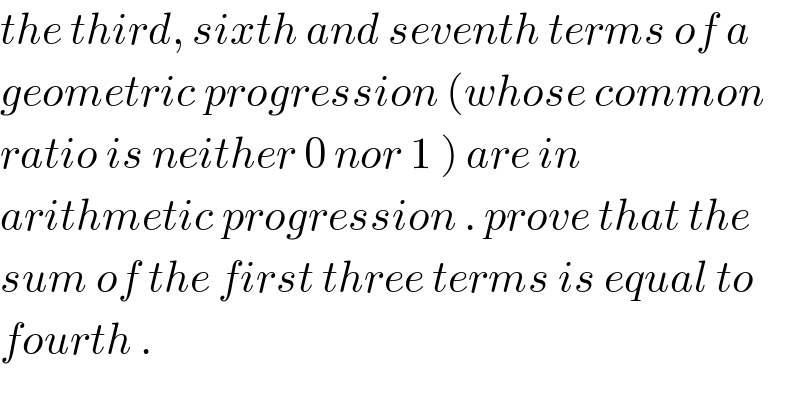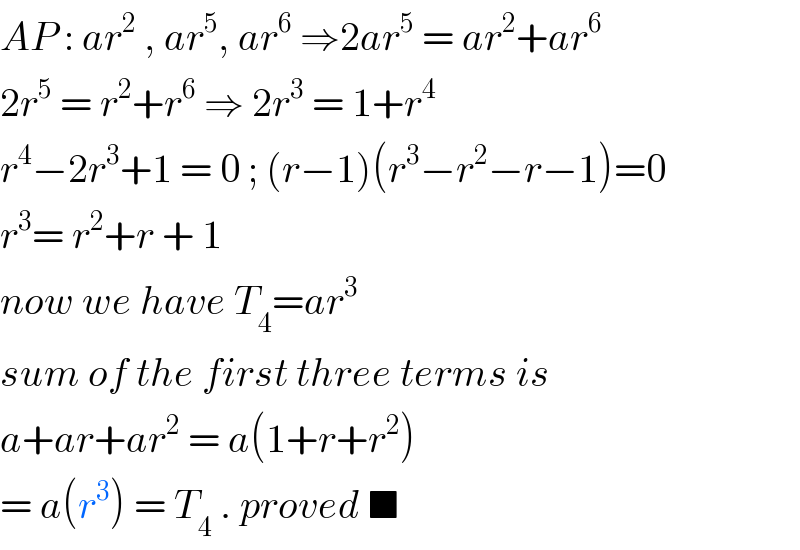
Question Number 103780 by bobhans last updated on 17/Jul/20

$${the}\:{third},\:{sixth}\:{and}\:{seventh}\:{terms}\:{of}\:{a} \\ $$$${geometric}\:{progression}\:\left({whose}\:{common}\right. \\ $$$$\left.{ratio}\:{is}\:{neither}\:\mathrm{0}\:{nor}\:\mathrm{1}\:\right)\:{are}\:{in} \\ $$$${arithmetic}\:{progression}\:.\:{prove}\:{that}\:{the} \\ $$$${sum}\:{of}\:{the}\:{first}\:{three}\:{terms}\:{is}\:{equal}\:{to} \\ $$$${fourth}\:. \\ $$
Answered by bemath last updated on 17/Jul/20

$${AP}\::\:{ar}^{\mathrm{2}} \:,\:{ar}^{\mathrm{5}} ,\:{ar}^{\mathrm{6}} \:\Rightarrow\mathrm{2}{ar}^{\mathrm{5}} \:=\:{ar}^{\mathrm{2}} +{ar}^{\mathrm{6}} \\ $$$$\mathrm{2}{r}^{\mathrm{5}} \:=\:{r}^{\mathrm{2}} +{r}^{\mathrm{6}} \:\Rightarrow\:\mathrm{2}{r}^{\mathrm{3}} \:=\:\mathrm{1}+{r}^{\mathrm{4}} \\ $$$${r}^{\mathrm{4}} −\mathrm{2}{r}^{\mathrm{3}} +\mathrm{1}\:=\:\mathrm{0}\:;\:\left({r}−\mathrm{1}\right)\left({r}^{\mathrm{3}} −{r}^{\mathrm{2}} −{r}−\mathrm{1}\right)=\mathrm{0} \\ $$$${r}^{\mathrm{3}} =\:{r}^{\mathrm{2}} +{r}\:+\:\mathrm{1} \\ $$$${now}\:{we}\:{have}\:{T}_{\mathrm{4}} ={ar}^{\mathrm{3}} \\ $$$${sum}\:{of}\:{the}\:{first}\:{three}\:{terms}\:{is}\: \\ $$$${a}+{ar}+{ar}^{\mathrm{2}} \:=\:{a}\left(\mathrm{1}+{r}+{r}^{\mathrm{2}} \right)\: \\ $$$$=\:{a}\left({r}^{\mathrm{3}} \right)\:=\:{T}_{\mathrm{4}} \:.\:{proved}\:\blacksquare \\ $$
